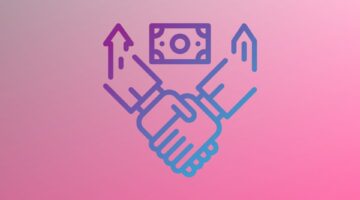
Racial and socioeconomic realities have always been tied to a person’s health, with research showing the myriad ways in which being part of a minority group or experiencing food or housing insecurity can result in poorer outcomes. The Covid-19 pandemic has made the gap in outcomes, across gender, race and income lines starker with people in minority racial and ethnic groups more likely to contract and die from the deadly novel coronavirus.
New Jersey-based RWJBarnabas Health is planning to address the social determinants of health with a program that purports to meet patients where they are and provide them with the resources they need, in a culturally nuanced manner. They are billing it as the nation’s first universally applied and culturally adaptable program that will integrate social factors with clinical care.
Dubbed Health Beyond the Hospital, the program will screen all patients, regardless of income level or race, to determine social and behavioral factors impacting their health, and then goes one step further to connect them with community programs and support services or resources offered by RWJBarnabas Health.
“We felt that our patients couldn’t wait,” said DeAnna L. Minus-Vincent, senior vice president, chief social integration and health equity strategist at RWJBarnabas Health, in a phone interview. “We understood that 80% of all health outcomes were due to social and behavioral factors. And we knew that we needed to do better.”
The universal screening aspect of the program is key, as it aims to reduce bias from providers and ensure patients don’t feel stigmatized, she said.
Funded by the Walmart Foundation and the Robert Wood Johnson Foundation, the program will create a closed-loop referral system for patients that need community support services, such as housing or nutrition. The health system has partnered with NowPow, a personalized digital community referral platform, and ConsejoSano, a patient engagement platform that enables culturally appropriate outreach. The program will be piloted at three or four sites before being expanded across the 11-hospital system in New Jersey.

Navigating The Right Steps For Your Healthcare Startup
This webinar will explore how a banking platform approach could be the resource for your company.
One of the most unique aspects of the program is its focus on culturally nuanced engagement. The screening is available in 22 languages, and questions are asked in a culturally adaptable way, Minus-Vincent said. This means the questions aren’t merely translated — they aim to capture the social mores and nuances of the culture or socioeconomic spectrum of the individual.
“An English-speaking, native-born Black American woman has different values and ideas about pride and stigma about not being able to feed her family than an immigrant-born male,” she explained. “And we want to make sure that the question sequencing and the cadence and the wording, phraseology, are all built in to how we ask those questions.”
Another key aspect of the Health Beyond the Hospital program is that clinicians can track patients through referrals. Say a diabetic patient is screened via the program, and clinicians discover that there is no grocery store in their neighborhood or that they cannot afford healthy foods. Clinicians can use the NowPow platform to refer the patient to a community-based nutrition service or a food bank and track their progress, Minus-Vincent said. The clinician is notified when the patient connects with the service.
The platform also enables clinicians to follow-up with the patient in a manner of their choosing. So, if the patient selects a “low-touch” follow-up via the phone, they will receive calls to check in about their health and the referral. If the patient elects a more intensive follow-up, a community health worker may go out to their homes, help identify barriers to care that they may be facing and help them overcome those hurdles.
While social determinants of health has become a key priority for many health systems around the country — with U.S. hospitals investing about $2.5 billion in social determinants of health programs from 2017 to 2019 — reimbursement remains a complication.
Some insurers, like Humana, have started programs to reimburse providers for identifying social determinants of health, reimbursement for these efforts is still not widespread.
This is where RWJBarnabas’ Health Beyond the Hospital can move the needle — by gathering data to serve as the economic evidence for these programs.
“We are working within our system to ensure that we are capturing all of the Z codes and ICD-10 codes so that we can show that [social factors] are root causes of other chronic illnesses,” Minus-Vincent said. “Food insecurity or poor nutrition are root causes of heart disease or diabetes or depression…and things like that, so that we can affect changing financial models in healthcare.”
Photo: vaeenma, Getty Images








